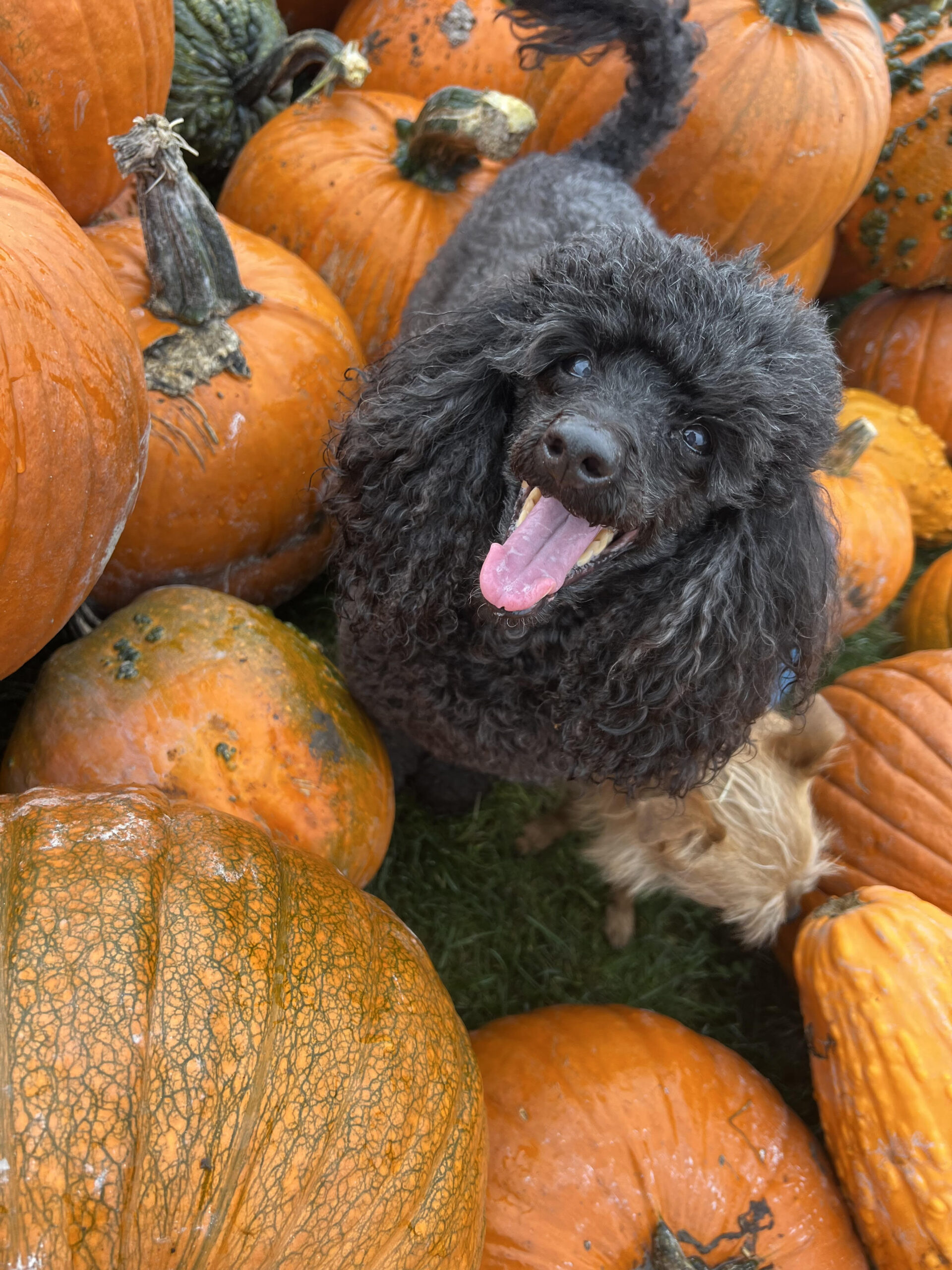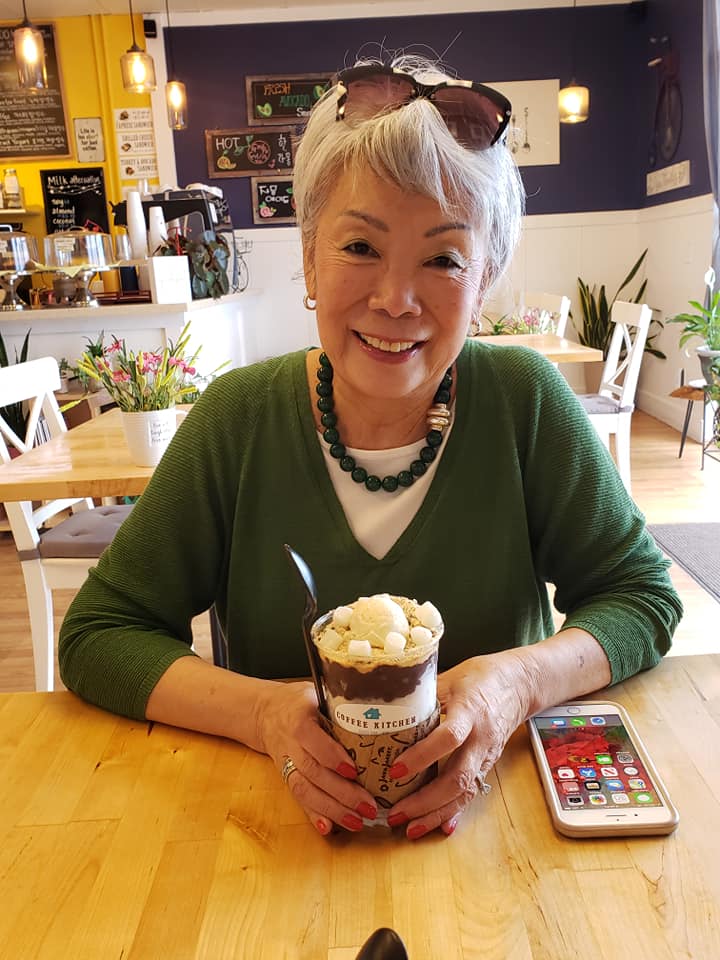BY JESSICA GRANT-JOSSY for WEEKLY VOLCANO 10/10/25 |
As households settle into new routines and the holidays draw closer, now is the time to make sure your pet’s care team is in place. Whether you’re preparing for travel, hosting visitors, or simply trying to stay organized, a little planning now will save you stress later. The goal is simple: keep your dog healthy, happy, and well cared for during one of the busiest times of the year.
Start with your veterinarian, the cornerstone of your pet’s care. Before winter arrives, it’s wise to double-check vaccinations, dental care, and overall wellness. Choose a veterinarian accredited by a reputable organization, and make sure their experience aligns with your dog’s breed, age, and any special needs. Look for clinics that emphasize preventive care and take a holistic view of health rather than focusing only on treatment. If you’re interested in alternative or integrative therapies such as acupuncture or raw diets, ask whether the practice is open to discussing them. It’s also important to confirm that the clinic provides after-hours or emergency care—or partners with an emergency facility that does.
During your first visit, pay attention to how the staff handles your questions and whether the vet takes time to listen. Dismissive attitudes, unnecessary treatments, or rushed appointments are warning signs. Before the holiday rush, schedule your pet’s annual exam and, if possible, tour the clinic to see how they handle patients. Online reviews and word-of-mouth recommendations from other pet owners can help you make an informed decision.
Training is another area where advance planning pays off. Fall is an ideal season to focus on your dog’s behavior—cooler temperatures and fewer distractions create better conditions for learning. A good trainer builds communication and confidence between you and your dog using positive reinforcement rather than punishment. Seek out certified professionals who emphasize gentle, reward-based techniques and are transparent about their approach. If your dog struggles with specific behaviors such as reactivity or separation anxiety, look for a trainer who specializes in those areas. Ask questions about their methods, whether they offer private or group sessions, and how they address fear or aggression. Be cautious of anyone who guarantees results or relies heavily on aversive tools like shock or prong collars without consent. The best trainers invite owner participation and encourage consistent practice at home. Training success comes from repetition and patience—it’s much like raking leaves; a little consistent effort keeps everything in order.
Grooming should also be part of your seasonal checklist. As fall brings mud, rain, and shedding, maintaining your dog’s coat and skin becomes even more important. Choose a groomer experienced with your dog’s breed and coat type, especially if your dog has unique grooming requirements. Visit the salon before your appointment to ensure it’s clean, calm, and organized, with properly sanitized tools and gentle handling practices. Good groomers are transparent about their services and the products they use, and they’re happy to explain how they handle nervous or older dogs. Avoid facilities that appear chaotic, use harsh products, or seem reluctant to answer questions. If you plan to travel during the holidays, book your grooming appointments early—many salons fill up by mid-November. Consider scheduling a short introductory visit or “puppy session” to help your dog feel more comfortable with the process.
For those planning trips, finding a reliable dog sitter or boarding facility should be done well before your departure date. The right caregiver will understand your dog’s routine, personality, and needs, and will have the experience to handle emergencies. Look for sitters or facilities with demonstrated experience caring for dogs of different sizes and temperaments. Certification in pet first aid or CPR is a plus. If boarding, visit the facility in person to check for cleanliness, safety, and adequate space for exercise and rest. For in-home care, make sure the environment is secure and well maintained. Ask about daily routines, feeding schedules, supervision, and how they handle medical issues. Reliable caregivers communicate clearly, provide references, and are transparent about policies. Be wary of overcrowded boarding spaces, vague communication, or anyone unwilling to meet beforehand. A trial visit or short stay is a good way to see how your dog adjusts before committing to a longer period away.
No matter which providers you choose, trust your instincts. If something feels off during a conversation or visit, pay attention to that feeling. Ask for recommendations from other pet owners, trainers, or your veterinarian to help narrow your search. Be upfront about your dog’s habits, health issues, or sensitivities so caregivers know what to expect. Clear communication prevents misunderstandings and ensures your dog receives consistent care.
With a bit of forethought, the coming months can be smoother for both you and your pet. A well-chosen team of professionals—veterinarian, trainer, groomer, and sitter—will keep your dog safe, healthy, and comfortable through the holiday season and beyond.







